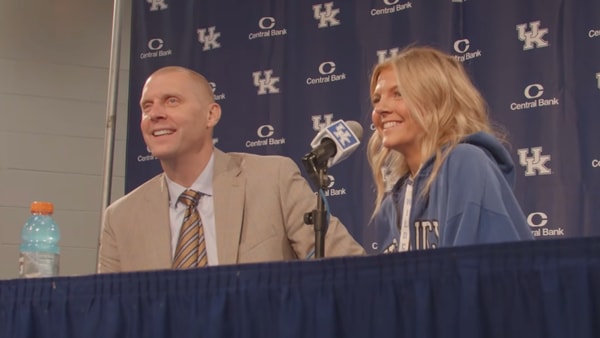
The world is currently suffering from Jordan Peele Fever. Since he took us all to the "Sunken Place" in his directorial debut
Get Out, America has been following his every move with excitement. That excitement compelled approximately all U.S. citizens to travel to the movie theaters two weeks ago
to see Us, which made an astounding
seventy-million dollars its opening weekend. And now America is looking to Peele to gift his talent to a new rendition of
The Twilight Zone on CBS All Access. Peele serves as the show's host and executive producer, and his face is plastered over trailers and posters that beg us to tune in to "Jordan Peele's
Twilight Zone."
What is remarkable about the first two episodes (the first is available on CBS's YouTube channel for free) is that Peele is not incredibly involved. His
only story credit is on the dismal second episode "Nightmare at 30,000 Feet" – more on that later –, and the show displays none of his visual style. Peele simply serves as the host and little more; he pops up in the introduction to remind us that we are entering... The Twilight Zone, and he pops up at the end to wrap up the show's themes.
The show's largest oddity so far – and the one that speaks perhaps the most to Peele's apparent creative absence – is that unlike the immensely political original series that Rod Serling ran,
The Twilight Zone of 2019 doesn't seem to have themes. Peele is one of the more overtly political filmmakers working in the blockbuster realm today, which makes him seem like an obvious heir to Rod Serling. He isn't really operating in that role, though, because the first two-episodes are more concerned with preternatural unease rather than social commentary. Peele's involvement in the two is largely relegated to narration, and none of his social cognizance is present in either of the episodes.
[caption id="attachment_259776" align="alignright" width="300"]

Kumail Nanjiani in "The Comedian."[/caption]
The first episode of the show, "The Comedian," follows stand-up comic Samir Wassan (Kumail Nanjiani) and his repeated on-stage bombs. Samir believes in the power of comedy as art and wants to use his platform to make meaningful political statements. One of the most prominent jokes of his unpopular set has to do with the Second Amendment's language (it has the words "well-regulated" in it, guys!). He is lost in his failure until he meets comedy legend J.C. Wheeler (Tracy Morgan). Wheeler tells him that the people don't care about what he has to say; they care about
him. If Samir puts himself out there, the people will "absorb" him. Samir is reticent to bring his personal life in to the stage, but who would ignore the wisdom of J.C. Wheeler?
Samir brings his experiences to the stage first by making fun of his nephew for being on his phone in the audience. After many laughs at the expense of a small child, Samir's nephew disappears from the audience. In fact, he seems to have never existed: Samir's girlfriend has no memory of the boy when asked and none of the audience members who approach Samir after the show recall the jokes he made made. The crowd "absorbed" the child and removed him from existence. Samir is at first horrified, but then spends the rest of the episode sadistically using this newfound power to wipe-out anybody in his life that has hurt him in any way. As he erases his foes, he increases his Twitter followers and his popularity. Samir grows into a comedy star.
I am not one to try to think ahead of the plot or guess the twists that are coming; I prefer to be told a story rather than trying to figure one out before its end. With that said, the ending of "The Comedian" (which I won't spoil) is so obvious that within the first ten minutes I had deduced its destination. The episode is a fun watch if only for the remarkable performances of Nanjiani and Diarra Kilpatrick, who plays Samir's friend in stand-up DiDi Scott. But the end proves underwhelming because it could be seen miles away.
Even further, the thematic threads it spins are not only thin, but are contradictory. Is the show making an argument that comedy based on one's life is not worthwhile? If so, why does Samir's political set have absolutely zero traction? And if the show is arguing in some slight way that political comedy is not strong in 2019, then (as Sophie Gilbert of
The Atlantic argues) the writers of the episode have clearly ignored the likes of
John Oliver, Hassan Minhaj, and Hannah Gadsby.
[caption id="attachment_259777" align="alignleft" width="300"]

William Shatner and Goofy Bigfoot in "Nightmare at 20,000 Feet."[/caption]
The lack of clarity the new show has is even more evident in the second episode "Nightmare at 30,000 Feet" – which is an homage to the 1963 William Shatner episode "Nightmare at 20,000 Feet" – centers on Justin Sanderson (Adam Scott), an investigative reporter who is taking a flight across the Atlantic Ocean. He finds in his seat a mp3 player with a podcast playing that is covering the disappearance of the exact flight that Sanderson himself is on. Sanderson tries to piece the clues together in the podcast together in order to prevent the disappearance, making himself a maniac in the eyes of the flight attendants and passengers."Nightmare at 30,000 Feet" is a mess. It is clunky and ill-paced and far too long. Pitted against the Shatner episode its weaknesses are made even more clear. The Shatner episode follows a man who has been released from a mental institution – one he was placed in after a mental breakdown on a plane. He is flying for the first time and is incredibly on edge in his cramped window seat. Once the flight takes off, Shatner looks out the window to see a weird Bigfoot-like creature attempting to tear apart the plane. When Shatner calls others to look out the window, the Bigfoot floats away.
The furry villain of the Shatner episode is far more silly than anything in the 2019 rendition. But despite "30,000 Feet" being more grounded, the 1963 episode has humanity to it. Shatner's character is not only concerned about the terroristic creature, but is concerned with looking like a madman to his wife and fellow passengers. The episode is asking very serious questions about the extent to which one can overcome trauma and how to deal with it in the presence of others.
[caption id="attachment_259778" align="alignright" width="300"]

Adam Scott in "Nightmare at 30,000 Feet."[/caption]
"30,000 Feet" has seemingly nothing on its mind. There is a one sentence reference to Sanderson's experience with mental breakdowns, but that is the only effort made to connect the plot to the character's mindset. The 2019 episode is more concerned with making
The Twilight Zone palatable for a modern audience; there is an odd subplot centering on a Russian expat passenger who is returning to testify against the mob. "Russia is trendy! So is the mob! Let's toss it in!" is something I am sure was said in the pitch meeting. The detail gives nothing to the weight of the episode. Rather, it is another way – coupled with the podcast element – to make the series realistic.
That seems to be the biggest flaw in the new run: the creative team assumes that
The Twilight Zone needs to be updated to meet modern tastes. The assumption is predicated on the belief that the original series does not hold up to current desires. Of course, that is a fallacy. If audiences were not interested in sci-fi allegory,
Black Mirror would live in obscurity.
Peele has said that the 2019 Twilight Zone is trying to stay away from Black Mirror by avoiding the latter's darkness and technological fascination. The new
Twilight Zone need not be as dark as
Black Mirror, but perhaps explicitly distancing itself from
Black Mirror is leading the
Twilight Zone showrunners to play it safe. Playing it safe was never Rod Serling's goal. Hopefully upcoming episodes will be more adventurous and thoughtful than the first two have been.
The Twilight Zone's first episode, "The Comedian," is free on YouTube for those without a CBS All Access subscription. "Nightmare at 30,000 Feet" and all forthcoming episodes will only be available on CBS All Access.
 The world is currently suffering from Jordan Peele Fever. Since he took us all to the "Sunken Place" in his directorial debut Get Out, America has been following his every move with excitement. That excitement compelled approximately all U.S. citizens to travel to the movie theaters two weeks ago to see Us, which made an astounding seventy-million dollars its opening weekend. And now America is looking to Peele to gift his talent to a new rendition of The Twilight Zone on CBS All Access. Peele serves as the show's host and executive producer, and his face is plastered over trailers and posters that beg us to tune in to "Jordan Peele's Twilight Zone."
What is remarkable about the first two episodes (the first is available on CBS's YouTube channel for free) is that Peele is not incredibly involved. His only story credit is on the dismal second episode "Nightmare at 30,000 Feet" – more on that later –, and the show displays none of his visual style. Peele simply serves as the host and little more; he pops up in the introduction to remind us that we are entering... The Twilight Zone, and he pops up at the end to wrap up the show's themes.
The show's largest oddity so far – and the one that speaks perhaps the most to Peele's apparent creative absence – is that unlike the immensely political original series that Rod Serling ran, The Twilight Zone of 2019 doesn't seem to have themes. Peele is one of the more overtly political filmmakers working in the blockbuster realm today, which makes him seem like an obvious heir to Rod Serling. He isn't really operating in that role, though, because the first two-episodes are more concerned with preternatural unease rather than social commentary. Peele's involvement in the two is largely relegated to narration, and none of his social cognizance is present in either of the episodes.
[caption id="attachment_259776" align="alignright" width="300"]
The world is currently suffering from Jordan Peele Fever. Since he took us all to the "Sunken Place" in his directorial debut Get Out, America has been following his every move with excitement. That excitement compelled approximately all U.S. citizens to travel to the movie theaters two weeks ago to see Us, which made an astounding seventy-million dollars its opening weekend. And now America is looking to Peele to gift his talent to a new rendition of The Twilight Zone on CBS All Access. Peele serves as the show's host and executive producer, and his face is plastered over trailers and posters that beg us to tune in to "Jordan Peele's Twilight Zone."
What is remarkable about the first two episodes (the first is available on CBS's YouTube channel for free) is that Peele is not incredibly involved. His only story credit is on the dismal second episode "Nightmare at 30,000 Feet" – more on that later –, and the show displays none of his visual style. Peele simply serves as the host and little more; he pops up in the introduction to remind us that we are entering... The Twilight Zone, and he pops up at the end to wrap up the show's themes.
The show's largest oddity so far – and the one that speaks perhaps the most to Peele's apparent creative absence – is that unlike the immensely political original series that Rod Serling ran, The Twilight Zone of 2019 doesn't seem to have themes. Peele is one of the more overtly political filmmakers working in the blockbuster realm today, which makes him seem like an obvious heir to Rod Serling. He isn't really operating in that role, though, because the first two-episodes are more concerned with preternatural unease rather than social commentary. Peele's involvement in the two is largely relegated to narration, and none of his social cognizance is present in either of the episodes.
[caption id="attachment_259776" align="alignright" width="300"] Kumail Nanjiani in "The Comedian."[/caption]
The first episode of the show, "The Comedian," follows stand-up comic Samir Wassan (Kumail Nanjiani) and his repeated on-stage bombs. Samir believes in the power of comedy as art and wants to use his platform to make meaningful political statements. One of the most prominent jokes of his unpopular set has to do with the Second Amendment's language (it has the words "well-regulated" in it, guys!). He is lost in his failure until he meets comedy legend J.C. Wheeler (Tracy Morgan). Wheeler tells him that the people don't care about what he has to say; they care about him. If Samir puts himself out there, the people will "absorb" him. Samir is reticent to bring his personal life in to the stage, but who would ignore the wisdom of J.C. Wheeler?
Samir brings his experiences to the stage first by making fun of his nephew for being on his phone in the audience. After many laughs at the expense of a small child, Samir's nephew disappears from the audience. In fact, he seems to have never existed: Samir's girlfriend has no memory of the boy when asked and none of the audience members who approach Samir after the show recall the jokes he made made. The crowd "absorbed" the child and removed him from existence. Samir is at first horrified, but then spends the rest of the episode sadistically using this newfound power to wipe-out anybody in his life that has hurt him in any way. As he erases his foes, he increases his Twitter followers and his popularity. Samir grows into a comedy star.
I am not one to try to think ahead of the plot or guess the twists that are coming; I prefer to be told a story rather than trying to figure one out before its end. With that said, the ending of "The Comedian" (which I won't spoil) is so obvious that within the first ten minutes I had deduced its destination. The episode is a fun watch if only for the remarkable performances of Nanjiani and Diarra Kilpatrick, who plays Samir's friend in stand-up DiDi Scott. But the end proves underwhelming because it could be seen miles away.
Even further, the thematic threads it spins are not only thin, but are contradictory. Is the show making an argument that comedy based on one's life is not worthwhile? If so, why does Samir's political set have absolutely zero traction? And if the show is arguing in some slight way that political comedy is not strong in 2019, then (as Sophie Gilbert of The Atlantic argues) the writers of the episode have clearly ignored the likes of John Oliver, Hassan Minhaj, and Hannah Gadsby.
[caption id="attachment_259777" align="alignleft" width="300"]
Kumail Nanjiani in "The Comedian."[/caption]
The first episode of the show, "The Comedian," follows stand-up comic Samir Wassan (Kumail Nanjiani) and his repeated on-stage bombs. Samir believes in the power of comedy as art and wants to use his platform to make meaningful political statements. One of the most prominent jokes of his unpopular set has to do with the Second Amendment's language (it has the words "well-regulated" in it, guys!). He is lost in his failure until he meets comedy legend J.C. Wheeler (Tracy Morgan). Wheeler tells him that the people don't care about what he has to say; they care about him. If Samir puts himself out there, the people will "absorb" him. Samir is reticent to bring his personal life in to the stage, but who would ignore the wisdom of J.C. Wheeler?
Samir brings his experiences to the stage first by making fun of his nephew for being on his phone in the audience. After many laughs at the expense of a small child, Samir's nephew disappears from the audience. In fact, he seems to have never existed: Samir's girlfriend has no memory of the boy when asked and none of the audience members who approach Samir after the show recall the jokes he made made. The crowd "absorbed" the child and removed him from existence. Samir is at first horrified, but then spends the rest of the episode sadistically using this newfound power to wipe-out anybody in his life that has hurt him in any way. As he erases his foes, he increases his Twitter followers and his popularity. Samir grows into a comedy star.
I am not one to try to think ahead of the plot or guess the twists that are coming; I prefer to be told a story rather than trying to figure one out before its end. With that said, the ending of "The Comedian" (which I won't spoil) is so obvious that within the first ten minutes I had deduced its destination. The episode is a fun watch if only for the remarkable performances of Nanjiani and Diarra Kilpatrick, who plays Samir's friend in stand-up DiDi Scott. But the end proves underwhelming because it could be seen miles away.
Even further, the thematic threads it spins are not only thin, but are contradictory. Is the show making an argument that comedy based on one's life is not worthwhile? If so, why does Samir's political set have absolutely zero traction? And if the show is arguing in some slight way that political comedy is not strong in 2019, then (as Sophie Gilbert of The Atlantic argues) the writers of the episode have clearly ignored the likes of John Oliver, Hassan Minhaj, and Hannah Gadsby.
[caption id="attachment_259777" align="alignleft" width="300"] William Shatner and Goofy Bigfoot in "Nightmare at 20,000 Feet."[/caption]
The lack of clarity the new show has is even more evident in the second episode "Nightmare at 30,000 Feet" – which is an homage to the 1963 William Shatner episode "Nightmare at 20,000 Feet" – centers on Justin Sanderson (Adam Scott), an investigative reporter who is taking a flight across the Atlantic Ocean. He finds in his seat a mp3 player with a podcast playing that is covering the disappearance of the exact flight that Sanderson himself is on. Sanderson tries to piece the clues together in the podcast together in order to prevent the disappearance, making himself a maniac in the eyes of the flight attendants and passengers."Nightmare at 30,000 Feet" is a mess. It is clunky and ill-paced and far too long. Pitted against the Shatner episode its weaknesses are made even more clear. The Shatner episode follows a man who has been released from a mental institution – one he was placed in after a mental breakdown on a plane. He is flying for the first time and is incredibly on edge in his cramped window seat. Once the flight takes off, Shatner looks out the window to see a weird Bigfoot-like creature attempting to tear apart the plane. When Shatner calls others to look out the window, the Bigfoot floats away.
The furry villain of the Shatner episode is far more silly than anything in the 2019 rendition. But despite "30,000 Feet" being more grounded, the 1963 episode has humanity to it. Shatner's character is not only concerned about the terroristic creature, but is concerned with looking like a madman to his wife and fellow passengers. The episode is asking very serious questions about the extent to which one can overcome trauma and how to deal with it in the presence of others.
[caption id="attachment_259778" align="alignright" width="300"]
William Shatner and Goofy Bigfoot in "Nightmare at 20,000 Feet."[/caption]
The lack of clarity the new show has is even more evident in the second episode "Nightmare at 30,000 Feet" – which is an homage to the 1963 William Shatner episode "Nightmare at 20,000 Feet" – centers on Justin Sanderson (Adam Scott), an investigative reporter who is taking a flight across the Atlantic Ocean. He finds in his seat a mp3 player with a podcast playing that is covering the disappearance of the exact flight that Sanderson himself is on. Sanderson tries to piece the clues together in the podcast together in order to prevent the disappearance, making himself a maniac in the eyes of the flight attendants and passengers."Nightmare at 30,000 Feet" is a mess. It is clunky and ill-paced and far too long. Pitted against the Shatner episode its weaknesses are made even more clear. The Shatner episode follows a man who has been released from a mental institution – one he was placed in after a mental breakdown on a plane. He is flying for the first time and is incredibly on edge in his cramped window seat. Once the flight takes off, Shatner looks out the window to see a weird Bigfoot-like creature attempting to tear apart the plane. When Shatner calls others to look out the window, the Bigfoot floats away.
The furry villain of the Shatner episode is far more silly than anything in the 2019 rendition. But despite "30,000 Feet" being more grounded, the 1963 episode has humanity to it. Shatner's character is not only concerned about the terroristic creature, but is concerned with looking like a madman to his wife and fellow passengers. The episode is asking very serious questions about the extent to which one can overcome trauma and how to deal with it in the presence of others.
[caption id="attachment_259778" align="alignright" width="300"] Adam Scott in "Nightmare at 30,000 Feet."[/caption]
"30,000 Feet" has seemingly nothing on its mind. There is a one sentence reference to Sanderson's experience with mental breakdowns, but that is the only effort made to connect the plot to the character's mindset. The 2019 episode is more concerned with making The Twilight Zone palatable for a modern audience; there is an odd subplot centering on a Russian expat passenger who is returning to testify against the mob. "Russia is trendy! So is the mob! Let's toss it in!" is something I am sure was said in the pitch meeting. The detail gives nothing to the weight of the episode. Rather, it is another way – coupled with the podcast element – to make the series realistic.
That seems to be the biggest flaw in the new run: the creative team assumes that The Twilight Zone needs to be updated to meet modern tastes. The assumption is predicated on the belief that the original series does not hold up to current desires. Of course, that is a fallacy. If audiences were not interested in sci-fi allegory, Black Mirror would live in obscurity. Peele has said that the 2019 Twilight Zone is trying to stay away from Black Mirror by avoiding the latter's darkness and technological fascination. The new Twilight Zone need not be as dark as Black Mirror, but perhaps explicitly distancing itself from Black Mirror is leading the Twilight Zone showrunners to play it safe. Playing it safe was never Rod Serling's goal. Hopefully upcoming episodes will be more adventurous and thoughtful than the first two have been.
The Twilight Zone's first episode, "The Comedian," is free on YouTube for those without a CBS All Access subscription. "Nightmare at 30,000 Feet" and all forthcoming episodes will only be available on CBS All Access.
Adam Scott in "Nightmare at 30,000 Feet."[/caption]
"30,000 Feet" has seemingly nothing on its mind. There is a one sentence reference to Sanderson's experience with mental breakdowns, but that is the only effort made to connect the plot to the character's mindset. The 2019 episode is more concerned with making The Twilight Zone palatable for a modern audience; there is an odd subplot centering on a Russian expat passenger who is returning to testify against the mob. "Russia is trendy! So is the mob! Let's toss it in!" is something I am sure was said in the pitch meeting. The detail gives nothing to the weight of the episode. Rather, it is another way – coupled with the podcast element – to make the series realistic.
That seems to be the biggest flaw in the new run: the creative team assumes that The Twilight Zone needs to be updated to meet modern tastes. The assumption is predicated on the belief that the original series does not hold up to current desires. Of course, that is a fallacy. If audiences were not interested in sci-fi allegory, Black Mirror would live in obscurity. Peele has said that the 2019 Twilight Zone is trying to stay away from Black Mirror by avoiding the latter's darkness and technological fascination. The new Twilight Zone need not be as dark as Black Mirror, but perhaps explicitly distancing itself from Black Mirror is leading the Twilight Zone showrunners to play it safe. Playing it safe was never Rod Serling's goal. Hopefully upcoming episodes will be more adventurous and thoughtful than the first two have been.
The Twilight Zone's first episode, "The Comedian," is free on YouTube for those without a CBS All Access subscription. "Nightmare at 30,000 Feet" and all forthcoming episodes will only be available on CBS All Access.







Discuss This Article
Comments have moved.
Join the conversation and talk about this article and all things Kentucky Sports in the new KSR Message Board.
KSBoard